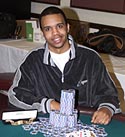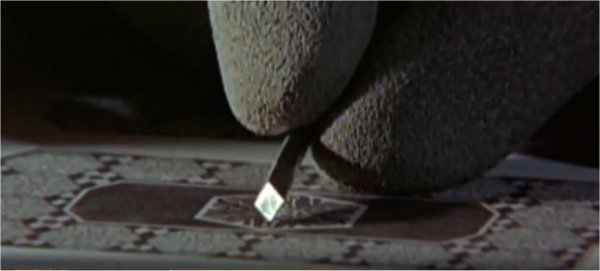 |
|
|
|
| | Home | | Index | | Info | | This Week | | Poker | | News |
|
||||||||
|
||||||||
Dispute over Punto Banco winnings hits the high court with suit and
counter-suit
The case has rocked the world of professional poker and professional gambling by pitting one of its most charismatic young stars against a major resort and casino operator. The game in question took place on Aug. 20-21 at Crockfords, London, the oldest casino name in the world. (Some history on William Crockford) This long-simmering dispute was first made public in April when Ivey filed a claim against the Genting Group in London's High Court. His lawyers said the casino refused to pay Ivey the money he had won playing Punto Banco at Crockfords, which is part of the Genting Group. The casino responded in court on 14th May by accusing Ivey of cheating, saying his winnings were invalid because they were "based upon illegal acts." The next day Ivey issued a statement through his lawyers denying any misconduct. Ivey said, "The fact that I have issued a lawsuit in the face of what they are alleging says everything about how comfortable I am with my conduct and the validity of my win," he said. "Any allegations of wrongdoing by Crockfords are denied by me in the very strongest of terms." The casino group said in the court papers that Ivey's "illegal acts" void his claimed winnings. It said he was able to have a "significant advantage" over the casino by using improper means to determine whether the first card being dealt in the baccarat hands would be a powerful or weak card, allowing him to place his bets accordingly. The court papers say Punto Banco Baccarat is played with six or eight decks of cards placed in what is called a dealing "shoe." The goal in each hand, which consists of two or three cards, is to get closest to nine — the best first cards are a 7, 8 or 9 since a 10 or a picture card counts as zero. Players can bet that they will win, that the bank will win, or that the hand will be a tie. (How to play Punto Banco) The court papers say that Ivey and his accomplice, after some trial and error, found a "shoe" that contained decks of cards with an asymmetrical design. They were then able to convince the dealer, after cards were revealed, to turn the card either sideways or end over end. The staff was not suspicious because the accomplice, who spoke Cantonese with the dealers, acted like she was superstitious and just changing the way the cards lay for good luck, court papers say. The effect was that the dealer inadvertently sorted the cards so that 7, 8 and 9 cards were distinguishable from others. Ivey sustained his success, the court papers claimed, by asking that the cards be shuffled automatically by a machine, which meant the way the cards were arranged was not altered as the game progressed. The court papers also claim that Ivey specifically asked for an Asian dealer so his accomplice could communicate with that dealer in a language not known by the rest of the casino staff. We await the clash of these two eagerly and will hopefully get a landmark ruling on whether the casino will be forced to pay up! For those new to the game of Punto Banco it is basically a casino version of Baccarat where all the choices that players have are removed and made automatic by rule. From this the expected advantage by knowing just one of the cards, for instance the first one, can be calculated. So if you know the first card to be dealt is a 9 then the advantage for the Player Bet is 22%, an 8 it is 17% and for a 7 it is 7%. If the case the casino is putting forward is true then Phil Ivey and his friend would have a large advantage over the house even if they could read only a few cards in the shoe. A little remembered 1966 movie Kaleidoscope starring Warren Beatty and Susannah York is all about Barney Lincoln (Warren Beatty) who breaks into a card manufacturer and alters the design on the backs of cards so that he can read their values during play.
The story unfolds that the police can't nail the criminal so Beatty's job is to bankrupt him in a high stakes poker game. I'll leave you to watch this great little gem of a movie and find out what happens.
|
||||||||
 Welcome to the News desk.
Welcome to the News desk. 


